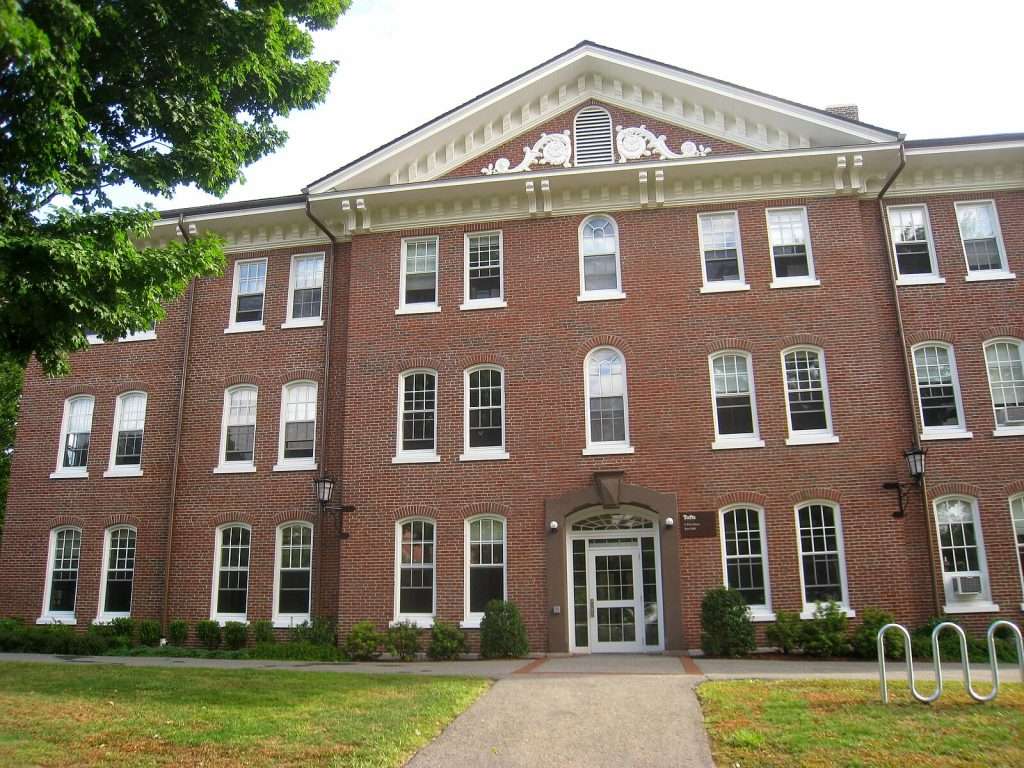College Intel
Tufts University Admissions

The first ever telephones, electric streetcars, and advances in nutritional science were all innovations carried out by faculty at Tufts University in the 19th century. Despite this history, Tufts only recently emerged into its current status as an R1 research university with “very high research activity” as classified by the Carnegie Classification. For most of its history, Tufts was a small liberal arts school for Northeastern prep school students that also happened to house some of the greatest scientific minds in America. The university’s recent cross-institutional collaborations with the New England Conservatory, MIT, Harvard, and universities across Europe have solidified its status as a global member of the elite higher education sphere.
Seven Nobel Prize Laureates and four Pulitzer Prize winners have taught at Tufts, along with economist and former Harvard president Lawrence Bacow, literary critic Lee Edelman, and former U.S. Secretary of Education Lauro Cavazos. Tufts alumni include eBay founder Pierre Omidyar, The View cast member and journalist Meredith Viera, and singer-songwriter Tracy Chapman.
Around 6,600 undergraduates and 6,000 postgraduates attend Tufts across campuses in Medford/Somerville, North Grafton, and Boston. The School of Arts and Science and the School of Engineering are located on the main campus in Medford/Somerville, but some undergraduates also enroll at the School of the Museum of Fine Arts in Boston, which is (surprise, surprise!) affiliated with the prestigious Museum of Fine Arts. Tufts also operates graduate schools focusing on dental medicine, medicine, law & diplomacy, veterinary medicine, biomedical science, nutrition, and citizen & public service.
The School of Arts and Science claims to have “no core curriculum,” but it does require the following classes: a “first-year writing requirement,” a “language or culture requirement,” a “world civilizations requirement,” and two classes each in the humanities, arts, social sciences, natural sciences, and mathematical sciences. Whether this coursework is comprehensive enough to constitute a core curriculum is up for interpretation, but in any case Tufts students are sure to receive a formidable education that lasts a lifetime.
Established in 1852 as “Tufts College” by the Universalist Church of Boston, the Tufts of the 19th century grew with the philanthropy of benefactors such as Circus businessman P. T. Barnum, whose namesake lives on with the Barnum Museum of Natural History on campus. Barnum also donated the stuffed hide of the famed Jumbo the elephant to the university in 1884. Today, Jumbo lives on as the campus mascot and the affectionate term for Tufts’ athletic teams, who compete in NCAA Division III.
In the 21st century, Tufts has forged a legacy for R&D (with over $200 million in annual research expenditures) and a campus culture that is easygoing, civically-engaged, and highly social. Students can split their time between writing for one of many publications like The Tufts Daily newspaper or The Zamboni satire magazine, performing with groups such as the Beelzebubs (an a cappella group who were featured on Glee), painting the Tufts cannon at midnight for the sake of promoting a social justice cause or upcoming event, or dodging administrators while participating in the infamous Naked Quad Run. The Greek life scene is considerable, with one out of every four undergraduates in a fraternity or sorority, but parties abound for students in all social niches.
Admissions to Tufts, in its earliest history, was a matter of birthright and elite upbringing. As meritocratic criteria were phased into the American higher education landscape, admission became more lenient. Ironically, acceptance rates have dwindled to Ivy-adjacent numbers in recent years on the basis of this very meritocratic criteria. 34,002 students applied to be members of the Class of 2027, and 3,444, or 10%, were accepted. According to Tufts Undergraduate Admissions, a competitive application requires extensive “self-reflection,” “research,” and “proof-reading.” Lucky for students who can’t imagine heading anywhere else for college, Ivy Coach excels at preparing students for the college application process with our own expert research, proof-reading, and tools for admissions-savvy self-reflection!
TOWARD THE CONQUEST OF ADMISSION
If you’re interested in Ivy Coach’s college counseling, fill out our complimentary consultation form and we’ll be in touch.
Get Started